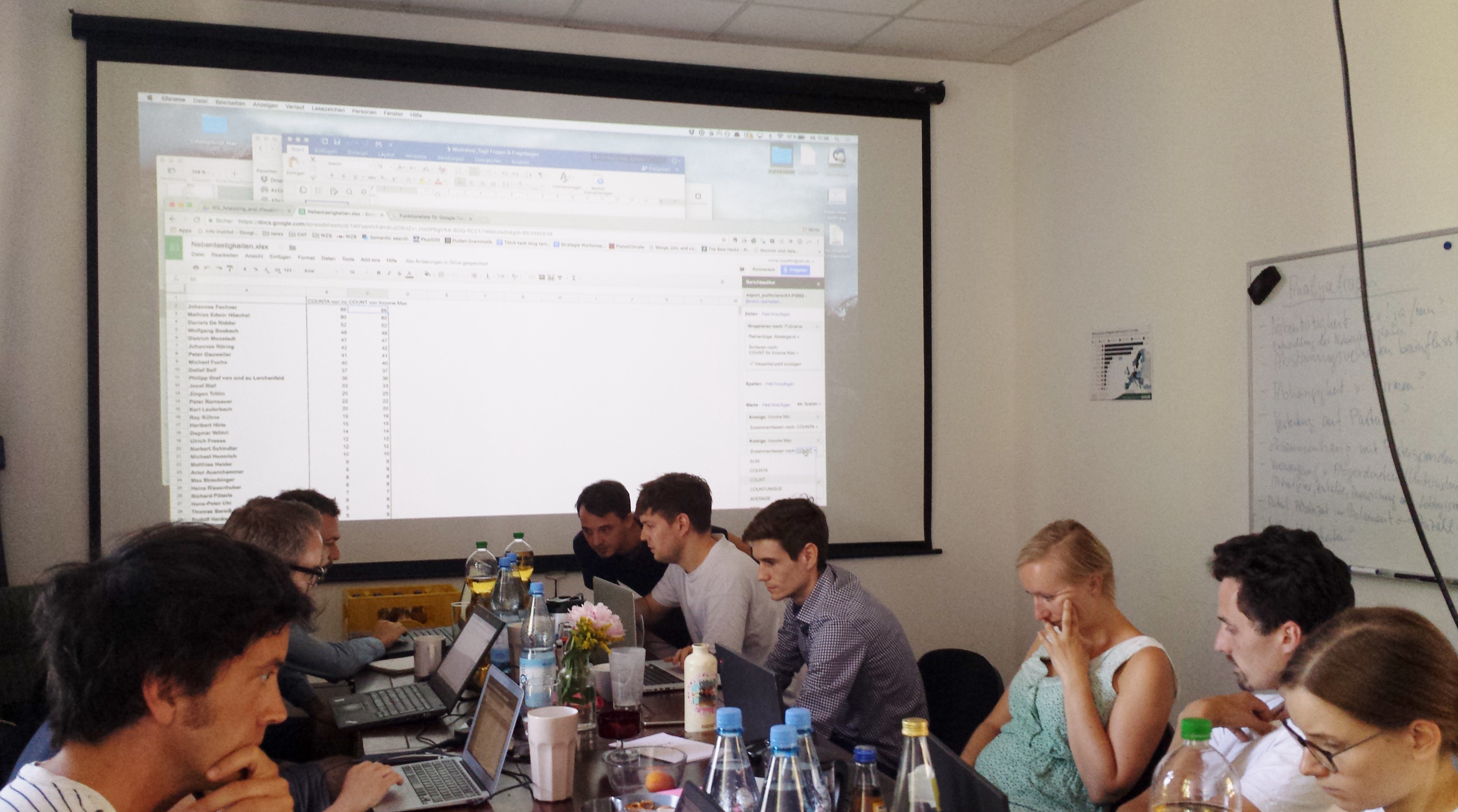CC0 Public Domain
What does it mean to become ‘data literate’? Where do you start and how can you use data within your work and projects? To explore these questions, we would like to introduce some of our community members and data activists from around the world, who ended up working with data at some point in their lives. We were curious about how they actually got started and - looking back now - what they would recommend to data newbies. Each month we will publish a new interview, this is no. #9. Got feedback? Have questions? Feel free to get in touch: info@datenschule.de
Who: Ttcat, Working for the open culture foundation & active in g0v
Topics: open data, inclusion and transparency
Tweets: @TTCATz
Hi Ttcat, please introduce yourself:
I started working for the international program of the open-culture foundation approximately one year ago. The foundation is based in Taipei and backs a lot of different movements in the open data community. I am especially focussing on topics such as open data and civic tech development.
How is the state of governmental transparency in your country?
It is quite advanced in Taiwan. We have an open information law which states that governmental data that is not classified should be open by default. A lot of local governments and governmental departments publish data in PDF or XML-files on their websites. But we currently do not have a proper open data law. Right now we are trying to advance the open information law, because it doesn’t specify important aspects such as: how data should be published and how it should be maintained. So in theory it is good, but reality is quite different. Sometimes data which could put government officials or big corporations in a bad light is not released. On the other hand, there is a rather lax handling of citizen data. For example, our universal health care administration keeps a large database of its citizens. Although anonymized, this data is used for academic research without asking the individuals for consent. In general, civil society engagement focuses a lot on transparency and mostly on governmental decision making processes, because that is neither open nor transparent.
When was the first time, when you came across data, when did you start to use data in your work?
I have been coding a bit for the last ten years but not on a high level. Actually I wasn’t very familiar with terms like “data-analysts” or “data-driven-journalism” before becoming active for g0v. In our first project in 2013 we did an open source budget visualisation of the Taiwan government. Three years later the city of Taipei forked this project and used it to publish their official data. Before that we had to scrape the information from their PDF-files.
Is the use of open Data a common thing in the civil society of Taiwan?
Yes, it is actually. We organised a small civic tech grant for civil society organisation in Taiwan. In the end we found six organisations which use open Data or try to promote the usage of open data in their projects. To give you another example of a data-driven project. I previously worked for an environmental protection organisation. They recently set up a website where you can research air pollution records of factories in Taiwan.
What does data literacy mean to you and is it going to be important?
Yes, I think it is going to be very important. All projects like the air-pollution map or the budget visualization have to deal with one question: Who is the user and how is he going to interact with a data-visualization or an app. Is he going to understand the information presented to him? The user needs the right competencies in order to understand data-driven stories correctly.
If someone is interested in working with data, what would be your advice, where to start?
Start with something you really care about and which you have a passion for. Maybe an issue you have been thinking for a while and which is important for your own community.
Melde dich bei unserem Newsletter an und erhalte monatlich Informationen über unsere Aktivitäten und Workshops.
 Bedarfsanalyse & Workshop für Verbände in der Jugendarbeit...
Bedarfsanalyse & Workshop für Verbände in der Jugendarbeit... Die Demokratielabore des Open Knowledge Foundation Deutschland e.V. führen mit Jugendlichen zwischen 12 und 21 Jahren...
 Interview mit abgeordnetenwatch.de: Über Plenarprotokolle, Digitalisierung & die...
Interview mit abgeordnetenwatch.de: Über Plenarprotokolle, Digitalisierung & die... In den letzten Monaten haben wir gemeinsam mit unserem Partner abgeordnetenwatch.de zu den Plenarprotokollen des Bundestags...